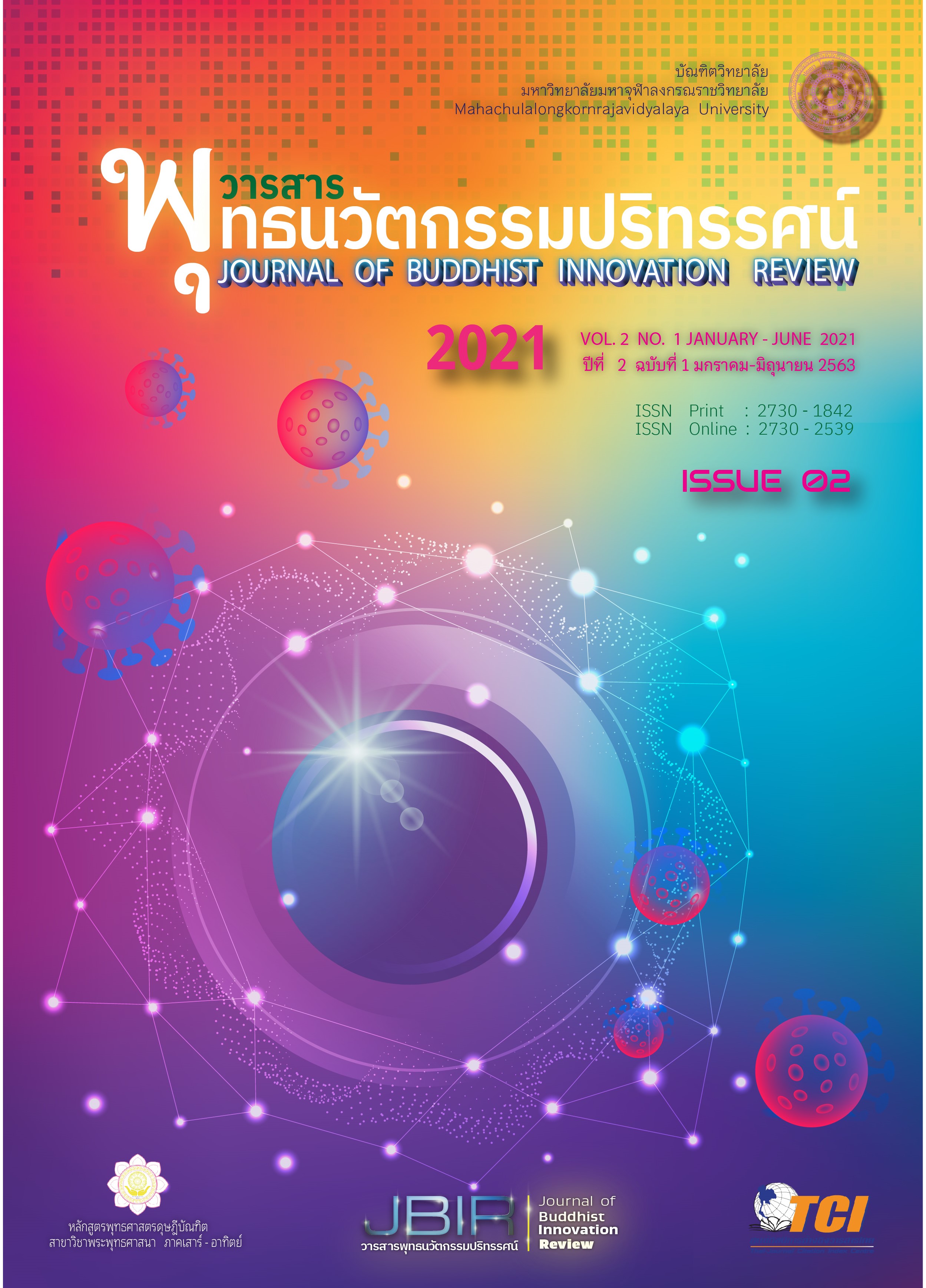Buddhist way of promoting holistic health and sustainability
Main Article Content
Abstract
This academic article It is intended to present Buddhist approach to promoting holistic health and sustainability This article summarizes that health is a state of fullness and balance of a person, physical, mental, emotional, social and spiritual. And health promotion It is a process or activity performed by an individual or a group of people to foster a healthy physical, mental, emotional, and social well-being in order to achieve potential. Buddhist approaches to promoting sustainable holistic health Evidence in the Tipitaka Summarize the Buddha's practice from Buddhism in promoting overall health. By operating health promotion Food consumption Exercise, mental management, being in nature Hygienic both physical and environmental Guidelines for promoting sustainable holistic health include:
- Physical Development :The body to be healthy, complete and free from illness Including caring for the outside environment Correctly, appropriately, pretty To benefit and other things necessary for the life of the elderly to be happy.
- Social Development: the development of the precepts of behavior for the better. Discipline Do not persecute others, live as a precepts When it comes to practice in order to not persecute both physical and verbal, it does not cause trouble to Society provides support to society Have discipline and live happily in society.
- Emotional Development: Developing the mind to understand the reality of life. When having a stable mind and able to be aware of the factors Would lead his life in the right way
- Wisdom Development:, the development, training of intelligence. to have knowledge and understanding of things according to reality, perception in the nature of things that happen Able to use wisdom to consider the causes of factors that affect it, use wisdom to reflect, adhere to the principles of morality and ethics, see the principles of cause and effect
Article Details

This work is licensed under a Creative Commons Attribution-NonCommercial-NoDerivatives 4.0 International License.
เรื่องลิขสิทธิ์/เป็นความคิดเห็นของผู้เขียน
References
เอกสารอ้างอิง
หนังสือ
ประเวศ วะสี. (2549). การพัฒนาระบบสุขภาพชุมชน สุขภาวะชุมชนเป็นรากฐานของสุขภาวะทั้งมวล. นนทบุรี: สถาบันวิจัยและพัฒนาระบบสุขภาพชุมชน.
ปราชญ์ บุญยวงศ์วิโรจน์. (2553). การขับเคลื่อนงานสาธารณสุขมูลฐาน ให้คนไทยมีสุขภาพดีถ้วนหน้าใน ปี พ.ศ. 2548. นนทบุรี: สำนักงานสารนิเทศและประชาสัมพันธ์ กระทรวงสาธารณสุข.
พระพรหมคุณาภรณ์ (ป.อ.ปยุตฺโต). (2548). สุขภาวะองค์รวมแนวพุทธ. สถาบันวิจัยระบบสาธารณสุข. นนทบุรี: กองการแพทย์ทางเลือก.
พิสมัย จันทวิมล. (2543). นิยามศัพท์ส่งเสริมสุขภาพ ฉบับปรับปรุง พ.ศ.2541. กรุงเทพมหานคร: สถาบันวิจัยระบบสาธารณสุข.
มหาจุฬาลงกรณราชวิทยาลัย. (2539). พระไตรปิฎกภาษาไทย ฉบับมหาจุฬาลงกรณราชวิทยาลัย.กรุงเทพมหานคร: โรงพิมพ์มหาจุฬาลงกรณราชวิทยาลัย.
สินศักดิ์ชนม์ อุ่นพรมมี. (2556). ผู้แปล. พัฒนาการสำคัญของการสร้างเสริมสุขภาพ. นนทบุรี: โครงการสวัสดิการวิชาการ สถาบันพระบรมราชชนก กระทรวงสาธารณสุข.
สำนักงานคณะกรรมการพัฒนาการเศรษฐกิจและสังคมแห่งชาติ. (2560). แผนพัฒนาเศรษฐกิจและสังคมแห่งชาติ ฉบับที่ 12 (พ.ศ. 2560–2564).
อนุวัฒน์ ศุภชุติกุล และงามจิตต์ จันทรสาธิต (บรรณาธิการ). (2543). นโยบายสาธารณสุขเพื่อสุขภาพ,กรุงเทพมหานคร: บริษัท ดีไซร์ จากัด.
Pender, N.J., Health Promotion in Nursing Practice, Connecticut : Appleton &Lange 1996.


